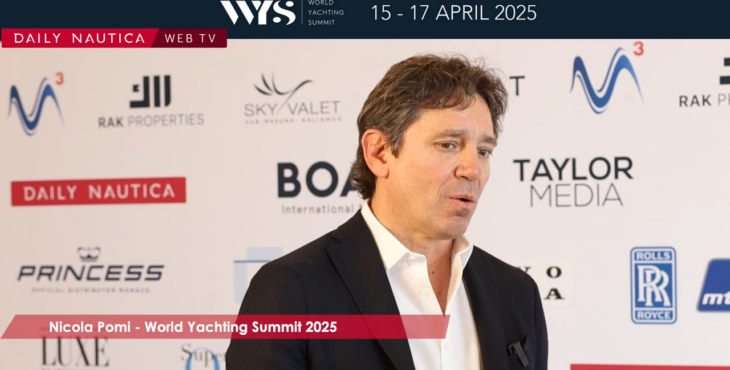Nicola Pomi from Volvo Penta talks to DN: “Zero emissions objective by 2050”
Daily Nautica interviewed Nicola Pomi, Vice President Marine Sales Yacht & Superyacht for Volvo Penta during the World Yachting Summit in Monaco

Daily Nautica interviewed Nicola Pomi, Vice President Marine Sales Yacht & Superyacht for Volvo Penta during the World Yachting Summit in Monaco
The World Yachting Summit in Monaco was a golden opportunity to debate on the future of yachting. Innovation and sustainability were the key words of the panels, which saw the participation of industry stakeholders and experts. Among these was Nicola Pomi, Vice President Marine Sales Yacht & Superyacht for Volvo Penta, a leading company in marine propulsion.
During his internview with Daily Nautica, media partner for the event, Pomi highlighted that we are now at a point of no return in the climate crisis. For this reason, Volvo Penta is trying to facilitate, as much as possible, the ecological transition in the pleasure yachting sector. The objective is to achieve net zero by 2050.
Efficiency and energy solutions
“We do have some strict deadlines – explained the Vice President Marine Sales Yacht & Superyacht for Volvo Penta to DN – by 2050 we need to have reached net zero and the Volvo group have announced that by 2040 it will stop manufacturing diesel engines. Before going into what type of energy we want to you, whether it be electric, bio or alternative fuels, we need to focus on efficiency, asking ourselves what the best solution is for a certain type of yacht, depending on the use we make of it. And after that, we can increase the use of the different types of energy that we have.”
Hydrogen and alternative solutions
“I think that hydrogen – added Nicola Pomi – is one of the technologies we will explore, even though there are still problems with storing it on board. What we really see as a market trend is the introduction of these alternative fuels like methane, ammonia, HVO that can already be used today. I can see there is a rise in development for this technology, but, in regards to hydrogen, there are some examples available on the market, by they are still experimental, it still isn’t ready to be implemented across the whole sector.”



